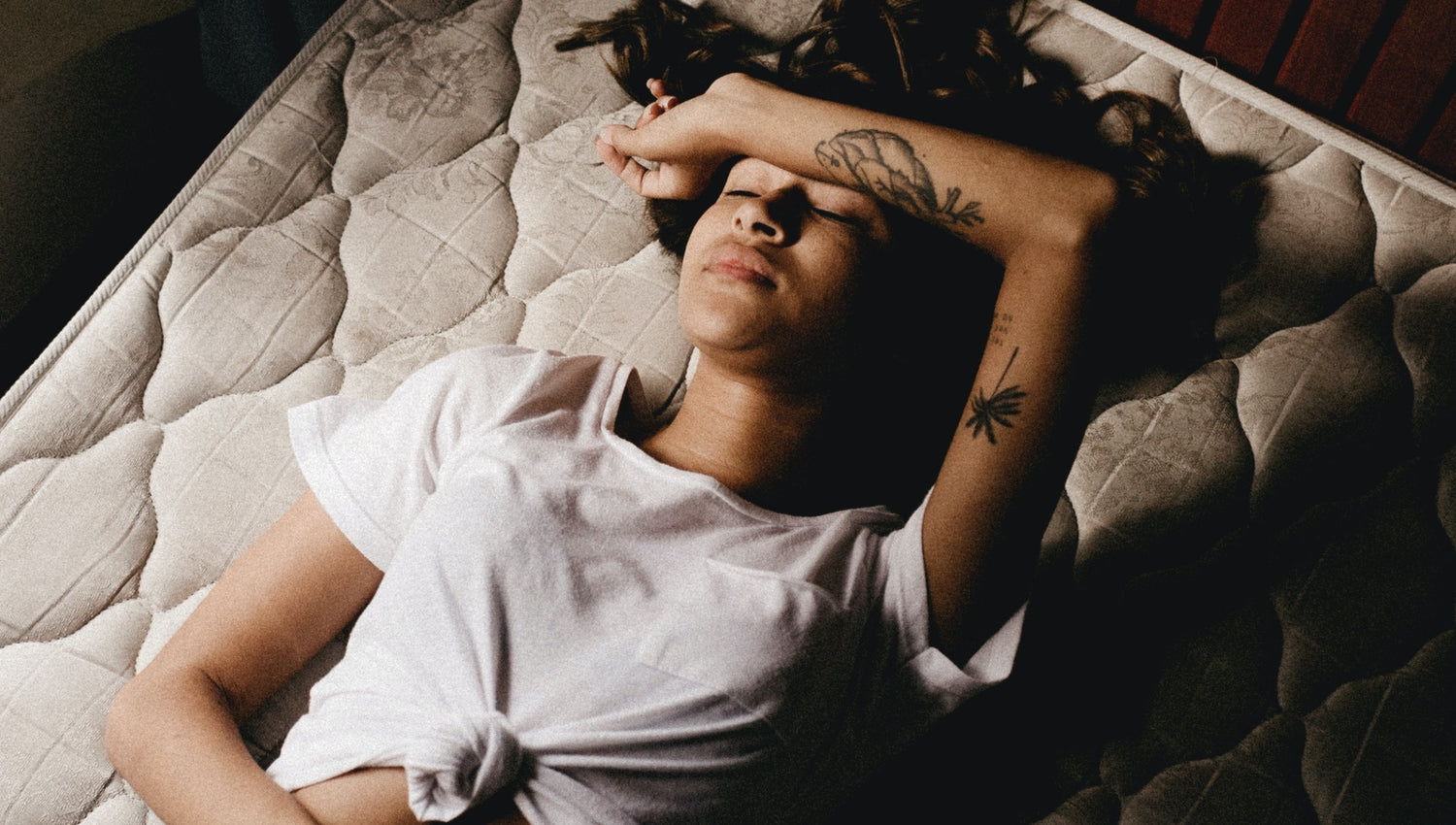Firstly, a public service announcement: your period pain should not be debilitating. You should not have to miss work because of your menstrual cycle. This is not normal. If you need to take over-the-counter pain medication to manage your period pain, it's time to start questioning why. Period pain has become normalized in our culture, and it's time we changed this narrative.
🏰 STORY
I began experiencing extreme menstrual pain when I was around 17 years old. On the first day of my period, I would vomit and faint. Every time I went to the doctor and described the excruciating cyclical pain, I received the same response.
“pain is normal . . . this is just part of being a woman. If you don’t want to suffer you should just take the Pill”.
I was belittled for not taking the contraceptive pill (which contains synthetic hormones) and made to feel like an ignorant little girl. The only alternative offered to me was prescription pain medication like codeine and mefenamic acid, which I reluctantly took. At the time, I was already taking pharmaceutical medication for my epilepsy and did not want to take any more drugs, so I opted for monthly painkillers instead of daily hormones. Looking back, I am not sure if that was the right decision -- the painkillers caused lasting damage to my gut.
The pain was excruciating. Four years later, on a Tuesday morning, my roommate had to call an ambulance for me. Due to the intensity of the pain, I experienced acute hyperventilation, causing my hands to claw and lock (also known as tetany). I initially thought it was the start of an epileptic seizure, but the hospital staff informed me that it was just period pain.
After nearly eight years of pleading for help and being met with resistance, I was finally offered a laparoscopy procedure to investigate whether there was an underlying issue in my body causing the pain.
After being told my pain was normal for so long, the eventual diagnosis shocked me—I had endometriosis.
I was informed that during the laparoscopy, most of the scar tissue from endometriosis on my womb had been burned off. As a result, my pain should improve. The pain did improve mildly, but, to be frank, it seemed to move from the front of my body where my ovaries are to my backside. Not fun!
After the surgery, I was still resolute that the contraceptive pill was not right for me and given my stance on that, it appeared there wasn't much more doctors or the medical system could offer me. So I turned to alternative solutions like acupuncture, traditional Chinese herbs, yoga/meditation, nutrition, and other supplements.
This was the start of a new journey, one where I was my own best advocate.
🩺 SCIENCE AND SPIRIT 👁️
from Dr Stephanie Colantonio, Looni’s medical adviser
The origins of this pain are rooted deep in a society that has lost sight of the value and beauty of our menstrual cycle. Historically, menstrual conditions have been underrepresented in the scientific literature, and studying period pain is not straightforward due to multifactorial influences such as culture, race, and family.
An estimated 190 million, or 10% of people who menstruate live with endometriosis—a condition where endometrial tissue, like the tissue lining your uterus (aka womb), grows outside of the womb. It can affect areas such as the ovaries, fallopian tubes, bowel, and the spaces between the uterus, rectum, and bladder.
As during a period, the endometrial tissue proliferates and bleeds in response to shifting hormones and bleeding in the pelvic cavity leads to inflammation and scar tissue that can cause intense pain. Research suggests that lesions develop new pain-sensitive nerves that can also contribute to chronic pain. However, some people with endometriosis do not experience any pain at all. Essentially, this is a complex condition that we still have much to learn about.
After a diagnosis by surgical laparoscopy, many people who struggle with endometriosis are offered hormonal contraception and OTC pain medications. These can effectively suppress pain but are more like band-aids with many potential side effects than a long-term solution.
Taking rest during your bleed is a beautiful practice to respect your body's rhythm, however periods should not be so painful that they interfere with your daily life. A holistic approach to endometriosis and other causes of period pain helps us get in tune with the wisdom of our cycles. When we deeply listen to what we need, we feel better.
🔮 SOOTHE
Herbal infusions can support alleviation of period pain when you need it most. Here is one of Dr. Stephanie Colantonio's favorite blends to help support you throughout your menstrual cycle.
Red raspberry, Motherwort, and Lemon balm
This blend offers a wonderful mix of anti-inflammatory, womb strengthening, and smooth-muscle relaxing properties for your menstrual cycle.
To make this blend, add a handful of red raspberry leaf and lemon balm with around 1 tablespoon of motherwort to 1 quart of boiling water. Allow to infuse for 4-8 hours, then strain the plant material out. Sip on this delicious blend throughout the day, diluting with more water if it tastes too strong or bitter.
For bulk herbs and spices, we recommend checking out Mountain Rose Herbs.
Chelsea x
Co-founder
You can find me elsewhere here on instagram.
---
📚 SOURCE
1 Zondervan KT, Becker CM, Missmer SA. Endometriosis. N Engl J Med 2020; 382:1244-56.

